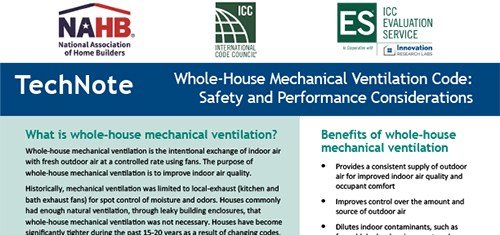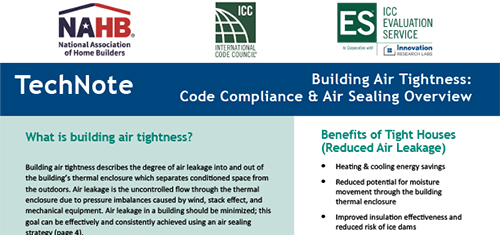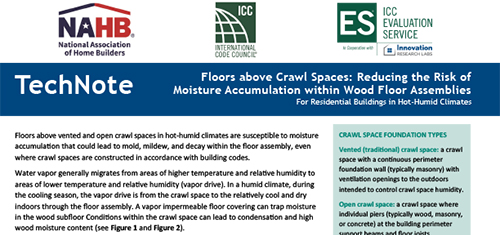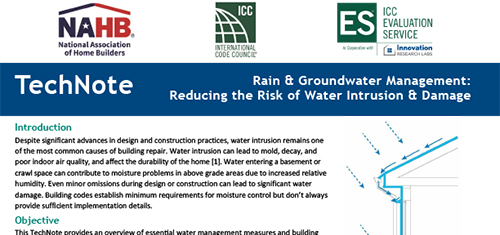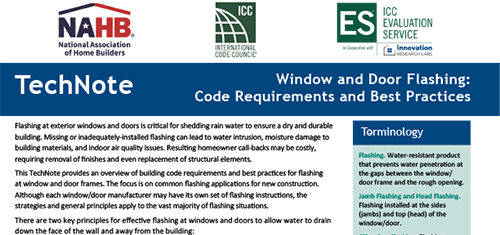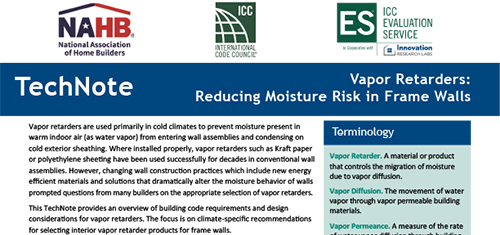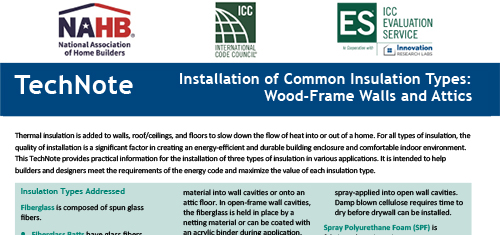The International Code Council welcomes S. K. Ghosh Associates Inc., a seismic and building code consulting firm located in Palatine, Ill., as part of its Family of Companies, effective June 1. The addition will strengthen ICC’s technical abilities in structural engineering and expand ICC’s technical consulting service for its members and clients. Read more.
Month: June 2017
Modular Building Institute and International Code Council Come Together to Accelerate Modular and Off-site Construction
The Modular Building Institute (MBI) and the International Code Council (ICC) are the driving force behind efforts to accelerate the use of modular construction and eliminate barriers in the industry by developing a series of modular-themed guidelines and resources for code officials.
“The current content of the I-Codes and referenced standards must be updated to address the rapidly growing modular construction industry,” said MBI Executive Director Tom Hardiman. “We are extremely pleased to be working with the ICC to help code officials become better informed on this off-site construction process.” Tentative plans call for the ICC and MBI to collaborate on a series of guidelines and standards, including a model administrative program as well as more resources for the use of containerized structures.
“Off-site construction can provide real solutions to many challenges facing the construction industry today,” said ICC Chief Executive Officer Dominic Sims, CBO. “The Code Council looks forward to working with MBI and other industry partners to provide a catalyst for the application and use of off-site construction methods.”
The Modular Building Institute and the National Portable Storage Association (NPSA) are working together on an industry white paper regarding the safe use of containerized structures in the construction process. That white paper will be the introduction for working together with the ICC. Already successful in getting new language included in the 2018 International Building Code specifically addressing relocatable buildings—a significant portion of the modular construction industry—MBI’s new collaborative effort with ICC will focus more on permanent modular construction, bathroom pods and containerized structures. “We are seeing towns and states across the country struggle with how to address the increasing use of containerized structures,” said Hardiman. “It’s a great concept, but we have to be able to demonstrate that this is a safe process for end users, while also protecting the significant investment that has already been made in these units.”
###
About the International Code Council The International Code Council is a member-focused association. It is dedicated to developing model codes and standards used in the design, build and compliance process to construct safe, sustainable, affordable and resilient structures. Most U.S. communities and many global markets choose the International Codes. About the Modular Building Institute Changing the Way the World Builds: Greener, Faster, Smarter. The Modular Building Institute is the international nonprofit trade association that has served the modular construction industry for more than 30 years. Members are suppliers, manufacturers and contractors involved in all aspects of modular projects— from complex multistory solutions to temporary accommodations. As the voice of commercial modular construction, MBI expands the use of off-site construction through innovative construction practices, outreach, education to the construction community and customers, and recognition of high-quality modular designs and facilities. For more information on modular construction, visit www.modular.org.
International Code Council Welcomes S. K. Ghosh Associates to Its Family of Companies
 |
|
| For Immediate Release June 2, 2017 www.iccsafe.org |
|
|
International Code Council Welcomes This mutually beneficial agreement will further strengthen the Council’s The International Code Council (ICC) welcomes S. K. Ghosh Associates Inc. (SKGA), a seismic and building code consulting firm located in Palatine, Ill., as part of its Family of Companies, effective June 1, 2017. S. K. Ghosh Associates is a preeminent technical resource on structural codes and standards for Authorities Having Jurisdiction (AHJ), design professionals, academics, and materials industries. It provides technical support through its publications, seminars, peer reviews, research projects, computer programs, code interpretations and comparisons, website, and other means. The addition of SKGA to the ICC’s Family of Companies will strengthen ICC’s technical abilities in structural engineering and expand ICC’s technical consulting service for its members and clients. “This move with S. K. Ghosh will be a tremendous benefit to Code Council members and stakeholders,” said International Code Council Chief Executive Officer Dominic Sims, CBO. “It will expand our in-house technical resources both domestically and around the globe.” “Building codes and planning are key to community resilience,” Sims added. “SKGA enhances the resources ICC has available to assist our members, AHJs and manufacturers.” Dr. S. K. Ghosh, president of SKGA, has a long affiliation with the Code Council that dates back more than 30 years. He has provided training and consulting services to ICC, has authored or coauthored numerous publications, and has written articles for the Code Council’s own publications — its weekly ICC eNews and its members-only Building Safety Journal Online. “The combining of SKGA and ICC feels like the formalization of a long-standing professional relationship,” said International Code Council Board of Directors President M. Dwayne Garriss, Georgia State Fire Marshal. “We feel there is a natural synergy between ICC and SKGA’s training business. S. K. Ghosh Associates has access to an extensive group of world-renowned instructors we can access to expand ICC’s education and training offerings to our members.” S. K. Ghosh Associates was founded by Dr. Ghosh, a world-recognized expert in structural engineering with expertise in concrete and masonry structures. Dr. Ghosh is known internationally for his work in earthquake engineering and has influenced seismic provisions in codes and standards in the United States for many years by serving on or chairing numerous committees and advisory panels. He specializes in the analysis and design of reinforced and pre-stressed concrete structures, including wind- and earthquake-resistant design. Dr. Ghosh is active on many national technical committees and is an honorary member of the American Concrete Institute (ACI) and fellow of the American Society of Civil Engineers (ASCE), the Structural Engineering Institute and the Precast/Prestressed Concrete Institute. He is a member of ACI Committee 318 and the ASCE 7 Standard Committee. “We are excited to join the ICC Family of Companies,” said Dr. Ghosh. “It is a logical alliance in so many ways. We can expand our reach and serve our clientele better with ICC’s resources supporting us. The Code Council will strengthen its ties to the structural engineering community with us joining the family.” ### About the International Code Council About S. K. Ghosh Associates |
|
Code Council’s Swimming Pool Code Plays Key Role in Health and Safety Highlighted in Congressional Meeting.
As Memorial Day weekend marked the opening of many swimming pools across the United States, the Association of Pool & Spa Professionals participated in a hearing before the U.S. Senate Committee on Commerce, Science & Transportation Subcommittee on Consumer Protection, Product Safety, Insurance and Data Security. The hearing was held in remembrance of the 10th anniversary of the Virginia Graeme Baker Pool and Spa Safety Act, and to call the public’s attention to the importance of taking proactive safety measures in aquatic facilities. Read more.
TechNotes
TechNotes Series
The International Code Council (ICC) and ICC Evaluation Service (ICC-ES) are working with the National Association of Home Builders (NAHB) to distribute the TechNotes series developed by NAHB’s Construction Technology Research Subcommittee and Innovation Research Lab. The TechNotes series is designed to assist builders in understanding and applying latest code requirements as well as implementing best practices in order to avoid building performance issues related to interior humidity levels, condensation in wall and roof assemblies, and interior air quality.
Whole-House Mechanical Ventilation Code: Safety and Performance Considerations
Building Air Tightness: Code Compliance & Air Sealing Overview
A summary of IRC requirements for installing whole-house mechanical ventilation systems. System types, benefits, costs, and design considerations are covered.
A summary of building code (IRC and IECC) requirements for building tightness, blower door testing and air barriers. Critical areas of a house needing proper air sealing are identified.
Floors above Crawl Spaces: Reducing the Risk of Moisture Accumulation within Wood Floor Assemblies
For Residential Buildings in Hot-Humid Climates
Rain & Groundwater Management: Reducing the Risk of Water Intrusion & Damage
Recommendations and best practices for floor construction over crawlspaces in hot/humid climates. Considerations include vapor permeability of floor materials, type of floor insulation and proper ventilation.
Recommendations and best practices for exterior wall drainage and bulk moisture control to avoid water infiltration into basements and crawlspaces. Covered practices include overhangs, gutters, flashing and water-resistant barriers, foundation drains and waterproofing and site grading.
Window and Door Flashing:
Code Requirements and Best Practices
Vapor Retarders:
Reducing Moisture Risk in Frame Walls
A summary of IRC requirements and best practices for window and door flashing. Covered are flashing material types, proper installation methods, standard details, and references to industry sources for additional guidance and details.
Recommendations for proper selection of vapor retarders and best practices for proper placement within the wall assembly. Existing building code requirements are summarized and climate zone-specific recommendations provided.
Humidity Control: Supplemental Dehumidification in Hot-Humid Climates
Installation of Common Insulation Types: Wood-Frame Walls and Attics
Recommendations for controlling interior humidity levels in homes in hot-humid climates. Existing building code requirements are summarized and best practices for installation of both standalone and integrated dehumidifiers are provided.
Thermal insulation is added to walls, roof/ceilings, and floors to slow down the flow of heat into or out of a home. For all types of insulation, the quality of installation is a significant factor in creating an energy-efficient and durable building enclosure and comfortable indoor environment.
Code Council’s Swimming Pool Code Plays Key Role in Health and Safety Highlighted in Congressional Meeting
 |
|
| For Immediate Release June 1, 2017 www.iccsafe.org |
Contact: Sara Yerkes 1-888-ICC-SAFE (422-7233), ext. 6247 syerkes@iccsafe.org |
Code Council’s Swimming Pool Code Plays Key Role in Health and Safety Highlighted in Congressional Meeting10th Anniversary of Virginia Graeme Baker Pool and Spa Safety Act Encourages Industry Awareness and Education As Memorial Day weekend marked the opening of many swimming pools across the United States, the Association of Pool & Spa Professionals (APSP) participated in a hearing before the U.S. Senate Committee on Commerce, Science & Transportation Subcommittee on Consumer Protection, Product Safety, Insurance and Data Security. The hearing was held in remembrance of the 10th anniversary of the Virginia Graeme Baker Pool and Spa Safety Act (VGB Act), and to call the public’s attention to the importance of taking proactive safety measures in aquatic facilities. The VGB Act prevents both entrapment and eviscerations by swimming pool and spa drains and traditional forms of drowning in public swimming pools and spas. In the hearing, APSP President and Chief Executive Officer Richard Gottwald discussed key aspects of the VGB Act and how APSP’s relationship with the International Code Council (ICC) has improved residential and public pool safety through the International Swimming Pool and Spa Code (ISPSC). The VGB Act resulted from the tragic death of former U.S. Secretary of State James Baker’s granddaughter caused by drain entrapment. In the 10 years since the legislation was signed, the pool and spa industry, led by the APSP — the largest trade association representing the pool and spa supply chain — and the ICC — which develops model codes and standards used in the design, build and compliance process — have collaborated to work with industry and government to protect all pool and spa users. Over the past decade, significant progress has been made to make new pools safe, according to Gottwald. In response to senators’ questions on actions that can be taken to continue the momentum of safer pools, Gottwald encouraged the adoption of the ISPSC. “We hope the subcommittee members will recognize and support statewide adoption of the ISPSC so as to protect our residential pool and spa users,” Gottwald said. “It is important to note that the ISPSC not only addresses suction entrapment prevention in pools and spas, but also provides barrier protection requirements in order to reduce the risk of unattended access to the pool or spa. Providing these safety requirements is of utmost importance and we continue to encourage each and every state to adopt this code.” The ISPSC is the first-ever, all-inclusive, comprehensive national model code for swimming pools and spas. In 2006, APSP finalized the ANSI/APSP-7 Standard for Suction Entrapment Avoidance in Swimming Pools, Wading Pools, Spas, Hot Tubs, and Catch Basins, which is consistent with all the provisions in the VGB Act. It protects against the three root causes of entrapments: suction, water velocity and mechanical binding. In 2009, this standard was accepted by ICC in the International Building Code and International Residential Code, and in 2012, it was included in the ISPSC. “Through our collaboration with APSP, building and public health officials have an innovative, comprehensive residential and public pool code to ensure pools and spas are built safely,” said International Code Council Chief Executive Officer Dominic Sims, CBO. “The ISPSC protects our children and families from accidents that can be prevented through the adoption of safety codes and standards.” The ISPSC is currently adopted as a mandatory code statewide in 11 states. In addition, the ISPSC is adopted as an optional code in 11 other states and is adopted in 73 local jurisdictions. For more information on the adoption of the ISPSC, please click here. ###
About the International Code Council About the Association of Pool & Spa Professionals |
|






